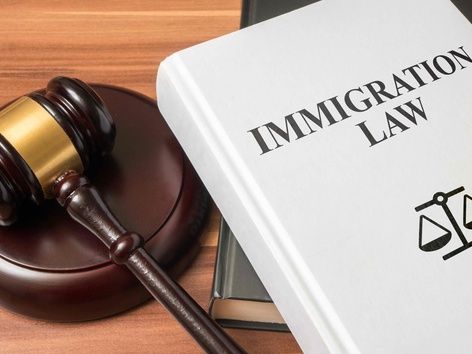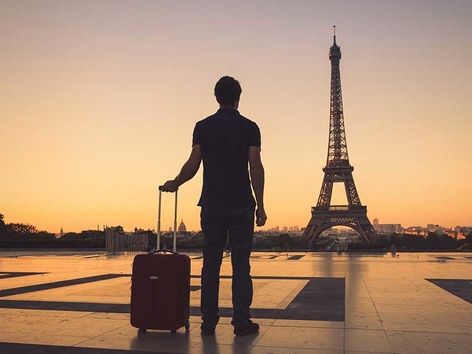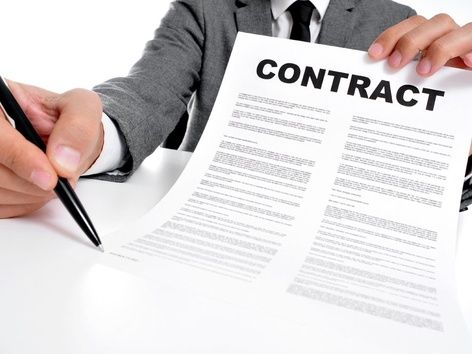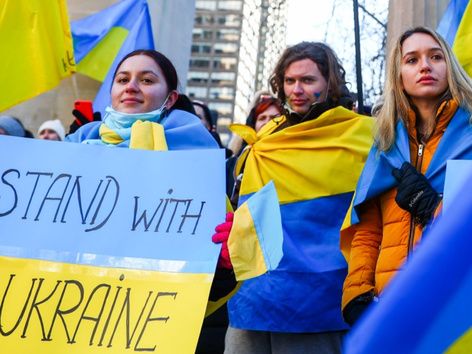French migration legislation: the policy of the revolving door

Paris is changing its tactics - migration legislation will be stricter. A new draft law has been submitted to the government to solve the problem of the influx of illegal migrants. Find out more about what awaits migrants in France and what changes are expected in 2024
Last year, France recorded a record number of asylum applications - more than 100 thousand. The largest number of migrants came from Algeria, Morocco and India. The country is facing a migration crisis that has become a challenge to its tolerance and humanism. With the emergence of migrants as a threat to the security and functioning of the state, the French government has introduced a migration bill. This initiative is intended to solve the problem of illegal migration, balance the influx of refugees and restore peace to citizens, ensuring stability in the political, economic and spiritual life of the country.
Changes in French migration policy
The new migration bill currently being discussed in France indicates a fundamental change in the approach to managing migration issues. While a year ago, President Macron expressed optimistic views on the impact of migration on the country's development, the government is now initiating tough measures to address the problem.
According to the new bill, people who cross the border illegally will be subject to criminal liability. It also provides for a reduction in the timeframe for processing asylum applications, as well as a time limit for filing appeals and applications upon arrival in France. Extension of the period of possible detention for identification purposes and before deportation is also part of the bill.
The Minister of the Interior, Gerard Collomb, argues that these measures are taken for the benefit of refugees, ensuring the possibility of easy return to their homeland for those who have not been granted refugee status. In particular, the new law allows refugees to invite their brothers and sisters, not just their parents, as it was before.
However, critics have already called this bill "repressive" and note that it could lead to increased expulsions of illegal migrants and create an image of a "closed door" for France. This could affect the perception of the country in other parts of the world and cause justified outrage from some charitable organizations.
Thus, the new draft law triggers a public debate on the correlation between deterring migration and protecting the rights and dignity of migrants in the modern world.
The problem of illegal migration in France
Calais, a small town in the north of France, has become a symbol of the problem of irregular migration and the difficulties of solving it. From a friendly place that welcomed thousands of tourists, it turned into a zone of tension and conflict. This was the result of an unexpected influx of migrants trying to get to the United Kingdom because of its proximity to Britain.
Local residents, who initially helped and protected migrants, began to feel insecure and unsafe in their own space. The migration crisis has led to tensions in a city that had previously been peaceful.
The confrontation in Calais was most acute in 2014-2016. The far right organized rallies against migrants, demanding their eviction. Some of the events ended in brawls, and tensions began to turn into general negativity about the situation.
The government's response was aimed not only at eliminating the consequences, but also at addressing the cause of the conflict. Forced resettlement of migrants and work on changing migration legislation became part of the strategy. The new draft law provided for stricter measures aimed at controlling illegal border crossings and speeding up the processing of asylum applications.
However, these steps were also criticized. Some experts believe that this could lead to further complications. Migrants continue to want to get to Britain, and the new measures could make the laws even more stringent.
After the "jungle" on the outskirts of Calais was eliminated and some migrants were relocated to other regions of the country, the situation became less tense. However, the anxiety has not completely disappeared, as Calais remains only one of many areas where problems arise due to migration.
France is forced to address not only the consequences, but also the causes, focusing its efforts on combating illegal migration and providing assistance to those in need. All this calls into question the future of tolerance and humanism in relations with migrants in the modern world.
What barriers do migrants face in France?
Migration to France leads to a number of challenges for newcomers, including the language barrier. French becomes an important factor in successful integration into a new society. To help migrants overcome this barrier, the French government offers free French courses, where everyone has the opportunity to learn the language from 50 to 200 hours, compulsorily up to A1 level, and then - if desired - up to A2 level.
Classes use effective methods, including the child-centered method, which emphasizes practice and interactive communication. Teachers create a friendly atmosphere, trying to provide practical knowledge as much as possible. The main goal of the courses is to teach migrants how to express their needs, communicate skillfully in different situations, and answer questions in a supermarket, hospital, or when dealing with everyday issues.
However, despite the availability of such courses, some migrants who can be labeled as illiterate do not show sufficient motivation to study. Some feel that a minimal knowledge of French is enough for them, and they show no interest in learning the language in practice.
The social isolation of this part of migrants who learn the language only formally is becoming the subject of President Macron's attention. He proposes to intensify job search centers so that employment options are found for everyone. If these migrants refuse decent work options, they may lose their social benefits.
Changes in legislation may make those who live at the expense of the state more interested in learning the language and working harder. In this context, the reforms may not only encourage them to acquire new skills, but also deter them from social isolation, creating additional motivation to integrate into French society.
Migrant centers in France
The creation of migrant centers is a common phenomenon, but when these associations expand significantly, they can become a problem, turning into a kind of state within the country. This situation can lead to a loss of control and power in the hands of local authorities, as well as to increased tensions between different groups of the population.
France is facing this problem in the form of the formation of separate "cities" of immigrants near Paris, where communities from Africa, Turkey and the Arab world have located their associations. Although most of them are safe, there are areas that are recommended to be avoided due to possible risks. However, what happens when these associations become self-sufficient and try to impose their rules on residents?
One example took place in the Paris suburb of Clichy, where the Muslim community decided to hold their prayers in the central square. Every Friday, hundreds of believers blocked traffic, demanding a special place for their rituals. The local administration offered alternatives, but the demands remained unheeded. The change of the library into a house of worship provoked a conflict with the authorities, but such cases emphasize that disrespect for local norms and traditions can lead to conflict.
The published draft law is an important signal that tolerance and patience are not unlimited. Alienating one's own rules and creating alternative areas of self-government can cause tension in society. The legislation points to the importance of preserving the language, culture and customs of France, reminding us of the need to maintain mutual understanding and respect within the country.
Igor Usyk - Head of Migration department at VisitWorld
To ensure a safe move to a new country, I advise you to consult a specialist. My colleagues, qualified specialists with a legal education, will help you avoid unpleasant situations during migration.
Products from Visit World for a comfortable trip:
Checklist for obtaining a visa and necessary documents in France;
Legal advice from a local specialist on visa and migration issues;
Travel insurance for foreigners in France;
Medical insurance all over the world.
We monitor the accuracy and relevance of our information. Therefore, if you see any error or discrepancy, please write to our hotline.
Recommended articles
2 min
Expats
Immigration to France: how to move to permanent residence in 2025
Migration to France has always been attractive to immigrants from all over the world. This country has a rich cultural heritage, a large number of opportunities and a friendliness towards foreigners. Find out how to legally immigrate to France in 2025: current ways of moving, requirements for foreigners, programs for students, entrepreneurs, workers and families
23 Jul. 2025
More details3 min
Employment
Employment contracts in France: types and characteristics
In France, labor law is quite complex and regulated by numerous regulations. The system of employment contracts in this country is diverse and is determined by the type of work, the nature of employment, as well as other factors. Learn more about the main types of employment contracts in France and their characteristics
08 Nov. 2023
More details2 min
Work
Work visa to France in 2025: current rules, types of permits, new requirements
France is known for its beauty, cultural richness and developed economy, making it an attractive destination for foreigners looking for work opportunities and new life experiences. However, to find work in a new country, foreigners need to obtain official permission. Learn more about the process of obtaining a work visa to France, the types of these visas and the documents required for successful processing
19 Jul. 2025
More details3 min
For refugees
France immigration: a detailed guide for Ukrainian refugees in FR
Ukrainians seeking asylum in France may face numerous questions and challenges. This guide is intended to provide the necessary information and guidance for refugees from Ukraine who have arrived in France. Learn more about temporary stay, residence, and the healthcare system in France
10 Nov. 2023
More detailsAll materials and articles are owned by VisitWorld.Today and are protected by international intellectual property regulations. When using materials, approval from VisitWorld.Today is required.
